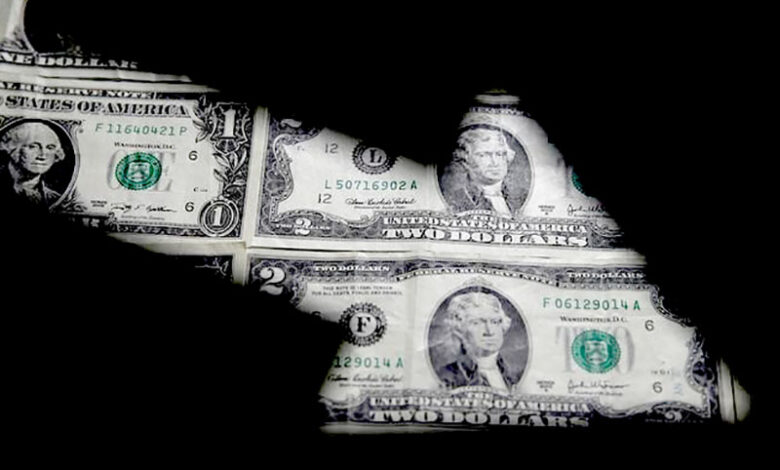Dollar and Euro stabilityBefore the ECB Meeting

In early European trading on Thursday, both the U.S. dollar and the euro were stable. This was because traders were being careful before a highly–anticipated meeting of the European Central Bank, which should show that its monetary policy will be tightened.
At 3:10 AM ET (07:10 GMT), the Dollar Index, which compares the dollar to a basket of six other currencies, was mostly unchanged at 102.545.
EUR/USD moved up to 1.0716 after staying in a tight range for most of the week as traders waited for news from ECB policymakers.
Most people think that the central bank will announce the end of its long-running asset purchase programme next month. This will pave the way for the first rise in interest rates in more than a decade.
Most people think that the deposit rate will go up by 25 basis points in July and September, bringing it up from the -0.5 percent it is now. But there is a lot of uncertainty about the size of any increases and the speed of future tightening, especially since inflation is currently more than four times the central bank’s long-term goal of 2%.
Analysts at ING said in a note that the ECB meeting “will raise the question of why it hasn’t tightened up sooner and whether a 25bp rate rise in July is a done deal or if there’s room for more.”
“Any message that doesn’t show openness to a 50bp hike would likely fall short of the market’s hawkish expectations and push EUR/USD closer to 1.0500,”
In response to rising inflation, central banks all over the world have begun to aggressively tighten monetary policy. Last month, both the Federal Reserve and the central banks of India and Australia raised rates by 50 basis points.
At 11:45 a.m. ET (7:45 a.m. GMT), the ECB will say what its policy is, and 45 minutes later, a press conference will be held.
The USD/JPY fell by 0.3% to 133.82 after reaching a new 20-year high of 134.54. This is because the Bank of Japan, which is an outlier among central banks, is keeping its easy monetary policy to help a weak economy while the rest of the world is starting to tighten.
Goldman Sachs, on the other hand, stayed optimistic about the Japanese yen. They saw two main ways in which the yen could get stronger: if the U.S. economy got worse soon or if the central bank changed its policy or stepped in.
GBP/USD dropped by 0.2% to 1.2514 before British Prime Minister Boris Johnson’s speech on making it easier for young people to buy homes. After surviving a vote of no confidence earlier this week, Johnson is trying to get back in charge.
Following the release of better-than-expected Chinese trade data for May, the risky AUD/USD fell 0.2 percent to 0.7179, the NZD/USD rose to 0.6448, and the USD/CNY fell to 6.6828.




